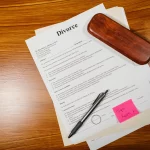Understanding the intricacies of the legal system can sometimes feel impossible, especially when it comes to understanding our rights and responsibilities in tense situations. One such area that frequently raises questions is the concept of self-defence. What exactly constitutes self-defence under Australian law? When can an individual rightfully claim they acted in self-defence, and when does it cross the line into unlawful conduct?
At Strategic Lawyers, we pride ourselves on simplifying complex legal concepts for our clients. This blog delves deep into the legal framework of Australia to demystify the principles surrounding self-defence, ensuring you’re well-informed and prepared to navigate such situations with clarity and confidence.
The Essence of Self-Defence
Self-defence is a legal concept that allows an individual to use reasonable force to protect themselves or another person from an imminent threat of harm. However, the application of this principle isn’t as straightforward as it might seem. The law requires that the force used in self-defence be proportionate to the threat faced. This means that one cannot employ excessive force beyond what is necessary to avert the danger.
When Can One Claim Self-Defence?
- Imminent Threat: The threat of harm must be immediate. It’s not enough to claim self-defence based on a perceived future threat.
- Reasonable Belief: The person claiming self-defence must genuinely believe that their actions were necessary to protect themselves or another person.
- Proportionate Response: The force used in self-defence must be proportionate to the threat. Using a weapon against an unarmed assailant, for instance, might be deemed excessive.
The Legal Implications
If you find yourself in a situation where you’ve had to defend yourself, it’s crucial to understand the legal implications. Claiming self-defence can be a valid defence in court, but it’s not a guaranteed acquittal. The court will assess the circumstances, the nature of the threat, and the proportionality of the response.
For those facing charges where self-defence is a potential argument, seeking expert legal advice is paramount. Our team at Strategic Lawyers are experts in Criminal Law, guiding clients through the complexities of the legal system with a customer-centric approach.
The Role of Strategic Lawyers
At Strategic Lawyers, we believe in empowering our clients with knowledge. Our team of dedicated professionals is committed to providing detailed and descriptive insights into the legal landscape. We understand that every case is unique, and our approach is tailored to suit the individual needs of our clients.
If you or someone you know is grappling with issues related to self-defence or any other legal matter, don’t hesitate to reach out. Our Dispute Resolution team is adept at handling a myriad of legal challenges, ensuring that our clients receive the best possible outcome.
Delving Deeper: The Historical Context
The concept of self-defence isn’t a recent development in Australian law. Historically, the right to defend oneself, one’s property, or another person has been deeply rooted in the legal traditions inherited from British common law. Over the years, Australian courts have refined and expanded upon these principles, adapting them to the unique socio-cultural context of the nation.
The Grey Areas of Self-Defence
While the basic tenets of self-defence might seem clear-cut, there are several grey areas that often come under scrutiny:
- Defence of Property: While defending oneself or another person is more straightforward, the law becomes murkier when it comes to defending property. What constitutes reasonable force when protecting one’s belongings? Can one use force to prevent theft or only when faced with physical harm during a burglary?
- Pre-emptive Strikes: If someone believes they are about to be attacked, can they strike first in self-defence? The law tends to be cautious here, often requiring clear evidence of an imminent threat.
- Intoxication: How does being under the influence of alcohol or drugs impact a self-defence claim? Intoxication can cloud judgement, and the courts often grapple with determining genuine perception of threat in such cases.
The Importance of Expert Guidance
Given these complexities, it’s evident that understanding self-defence isn’t merely about knowing the basics. It’s about comprehending its depth, nuances, and the myriad scenarios where it can be invoked. This is where the expertise of a seasoned legal team becomes invaluable.
Our professionals at Strategic Lawyers have witnessed firsthand the challenges individuals face when claiming self-defence. We’ve represented clients from diverse backgrounds, each with their unique story and circumstances. Our Family Law division, for instance, often encounters cases where self-defence plays a pivotal role, especially in domestic situations.
Community and Education
Beyond our legal services, we’re passionate about community engagement and education. We regularly host workshops and seminars, demystifying various aspects of Australian law. By fostering a well-informed community, we believe we can collectively reduce misunderstandings and conflicts, promoting a harmonious society.
Taking the Next Step
Understanding the concept of self-defence is just the tip of the iceberg. The Australian legal system is vast, and having a trusted legal partner by your side can make all the difference. At Strategic Lawyers, we’re more than just legal experts; we’re your allies in the quest for justice.
Ready to take the next step? Contact us today and let’s chart a course towards a brighter legal future together.






